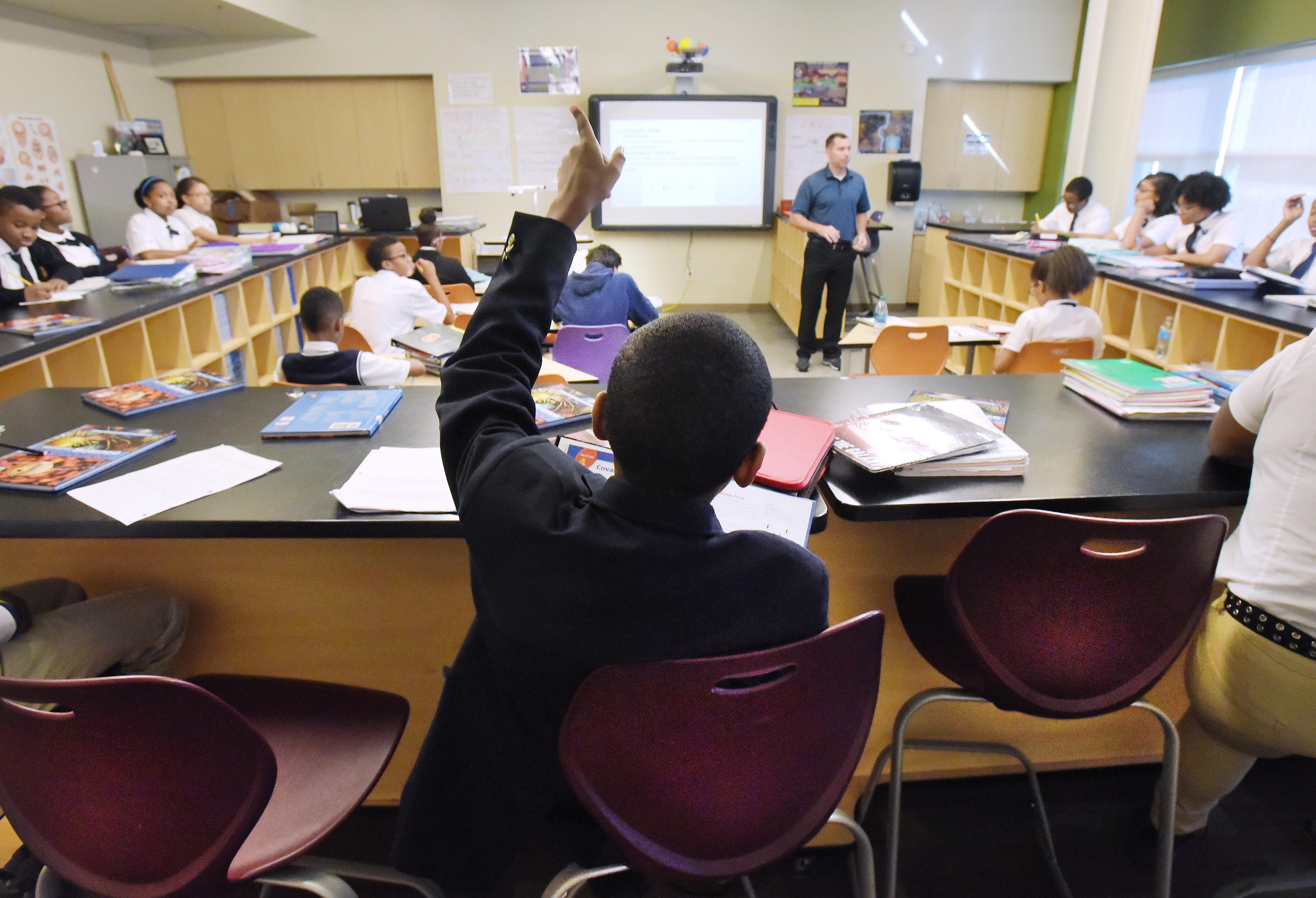Jacques: Michigan education board holds up $47 million for charter schools

Correction: The State Board of Education never officially approved or signed off on a Michigan Department of Education application for a charter school grant last year. A previous version of this column indicated that it had.
A nearly $50 million federal grant intended to improve education quality in Michigan is being held hostage by the state school board because it will help open more charter schools in the state.
The Michigan Department of Education sought and won the $47 million five-year grant last fall, and the expenditures were approved by the Legislature. But the Democratic-controlled board won’t sign off on the spending criteria, putting the grant in limbo.
At its regular meeting Tuesday, the eight-member board decided on a 4-3 vote against the department's criteria for awarding the funds to assist charter schools, which effectively will prevent education officials from distributing the money. Democrat Michelle Fecteau, who lives in Detroit, where more than half the children attend charter, private or suburban schools, abstained from voting.
The timing, which ironically came during National Charter Schools Week, is harmful to charter operators who are counting on the funding to either expand or start new schools in the fall. Applicants had to have a charter school contract in place to be eligible. Each successful applicant could receive up to $1 million. There is $14 million at stake this first fiscal year.
“The board is playing politics with schools and students,” says Dan Quisenberry, president of the Michigan Association of Public School Academies.
Following the November election, the State Board returned to supermajority 6-2 Democratic control. Most of the Democrats were backed in the election by teachers unions. Education unions have targeted charters schools as a threat to traditional public schools, and blame them for draining students away from districts like Detroit. Since the new board was seated in January, its sentiments have shifted, and support for charters is less certain.
That’s in sharp contrast to a year ago, when the U.S. Department of Education awarded the charter school grant to the state following a competitive application process.
The Education Department proudly sent out a press release in October when it got news of the award, saying the “MDE’s grant application had the highest score of any of the 15 grantees in the national competition.”
“When new charter schools are planned to open, we want to ensure that they design themselves from a model of successful charter schools,” stated interim Superintendent Sheila Alles at the time. “These federal grant funds will help these new schools, and the students they serve, have the best opportunity for success.”
Wendy Larvick, director of policy and partnerships at the National Charter Schools Institute, based in Michigan, says the grants were designed to improve the quality of the state’s charter schools.
“The department did its best,” Larvick says.
The federal grants are intended to encourage high-performing charter schools to replicate or expand. The criteria presented to the board Tuesday states, “the 2018-2023 Michigan Charter School Program Grant is designed to expand opportunities for all students, particularly traditionally underserved students, to attend public charter schools and meet challenging state academic standards.”
MDE spokesman Martin Ackley said in an email that following the State Board’s vote this week, “we are looking into next steps” but did not say when, or if, the money would be released.
An email from Tammy Hatfield, manager of the department’s Public School Academies Unit, more openly expresses the staff’s frustration with the board’s decision: “The PSA Unit would like to inform you that due to the State Board of Education non approval of the consent agenda item on the grant criteria, we are implementing a moratorium on (charter school program) grant activities around technical assistance opportunities or providing funds to new, expanding or replicating charter schools...While this is disappointment for you, your team or organization, we understand and will keep you informed as this advances.”
At the meeting, board members mouthed the usual attacks on charters schools, voicing concerns about for-profit operators, a lack of oversight and other claims that have largely been discredited in Michigan, where charters dominate the list of top-performing public high schools.
Quisenberry says part of the board’s discussion revolved around whether the state needs any new charters at all. The one specific concern stated by Democrats beyond general charter bashing was that in the past, similar grants had gone to schools that never ended up opening. However, this time the grants are limited to those schools that have already been given the green light to open.
Michigan has roughly 300 charter schools, serving 10% of the state’s public school students. While some are chartered by school districts, the majority are authorized by universities. All operators were eligible for the funds, if they met the performance criteria.
Larvick says the grant funding had already been through the legislative budget process and that the MDE isn’t legally bound to obtain the State Board’s approval on distributing the award. But for several years, state superintendents have chosen to include the board in the process.
Given this latest development, perhaps that practice should change.
The need to improve the “quality” of charter schools is the constant refrain from Democrats and unions. So it’s hard to understand why offering this funding -- obtained by the Education Department -- to worthy charters is so alarming to the board, since it seeks to do just that.
Grandstanding over the distribution of these dollars could also put future awards from the federal department at risk. And that’s harmful to Michigan’s schools and students.